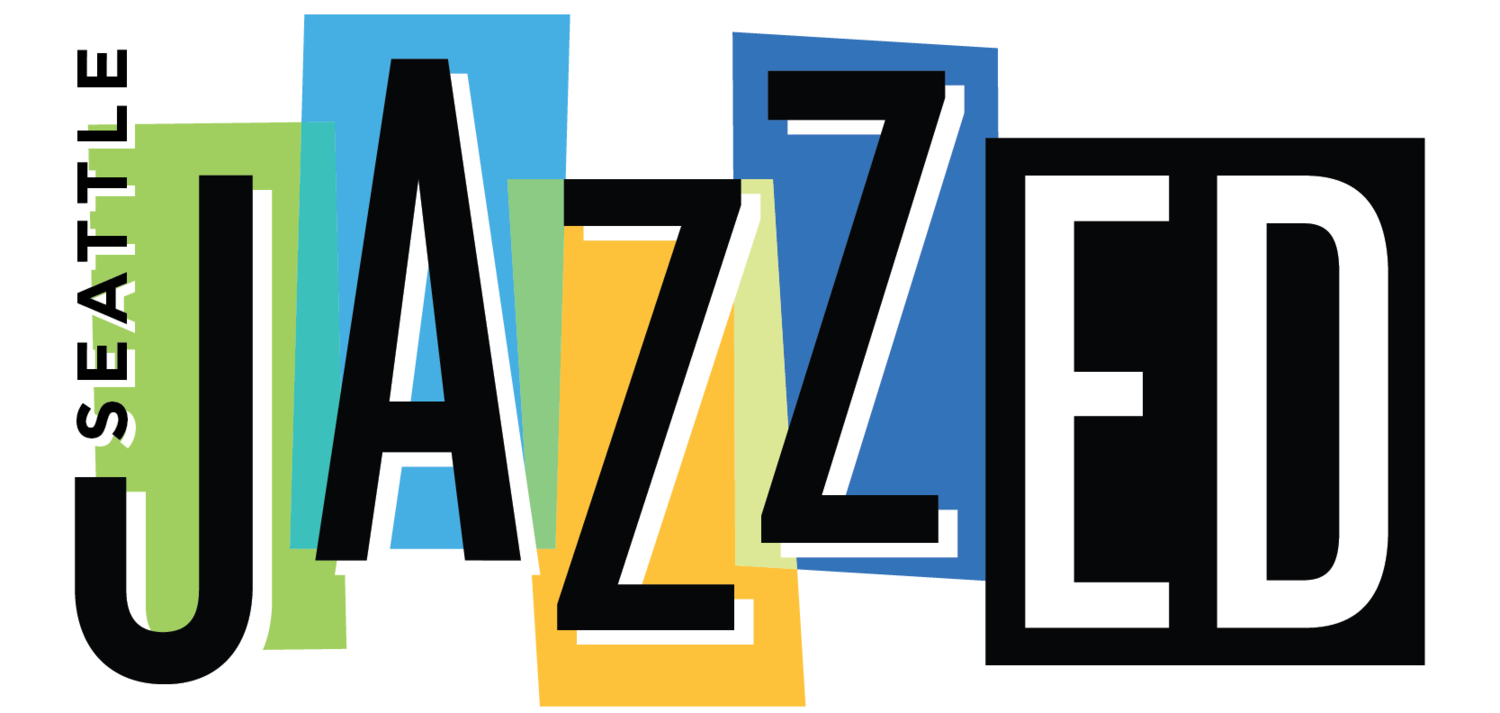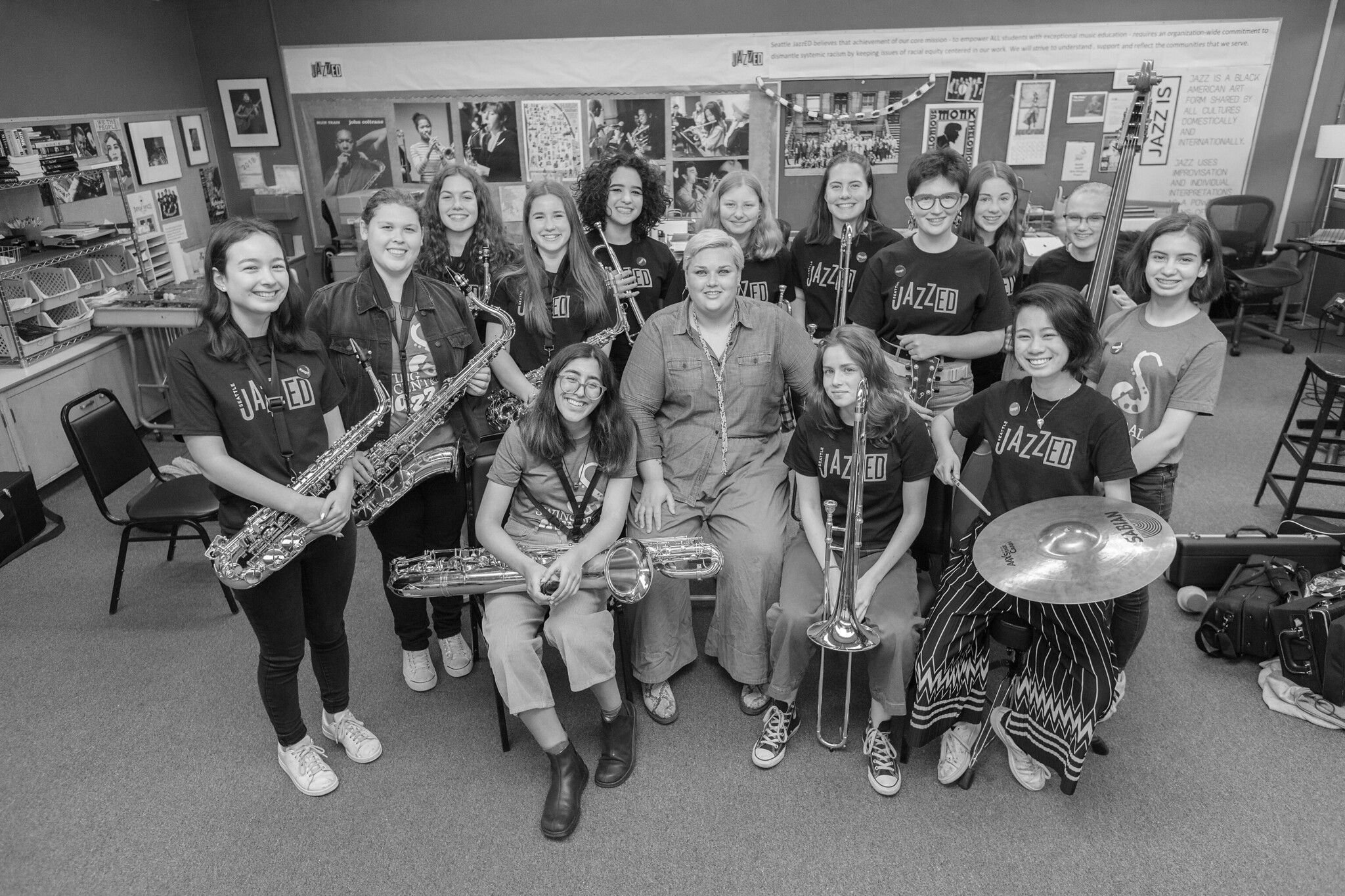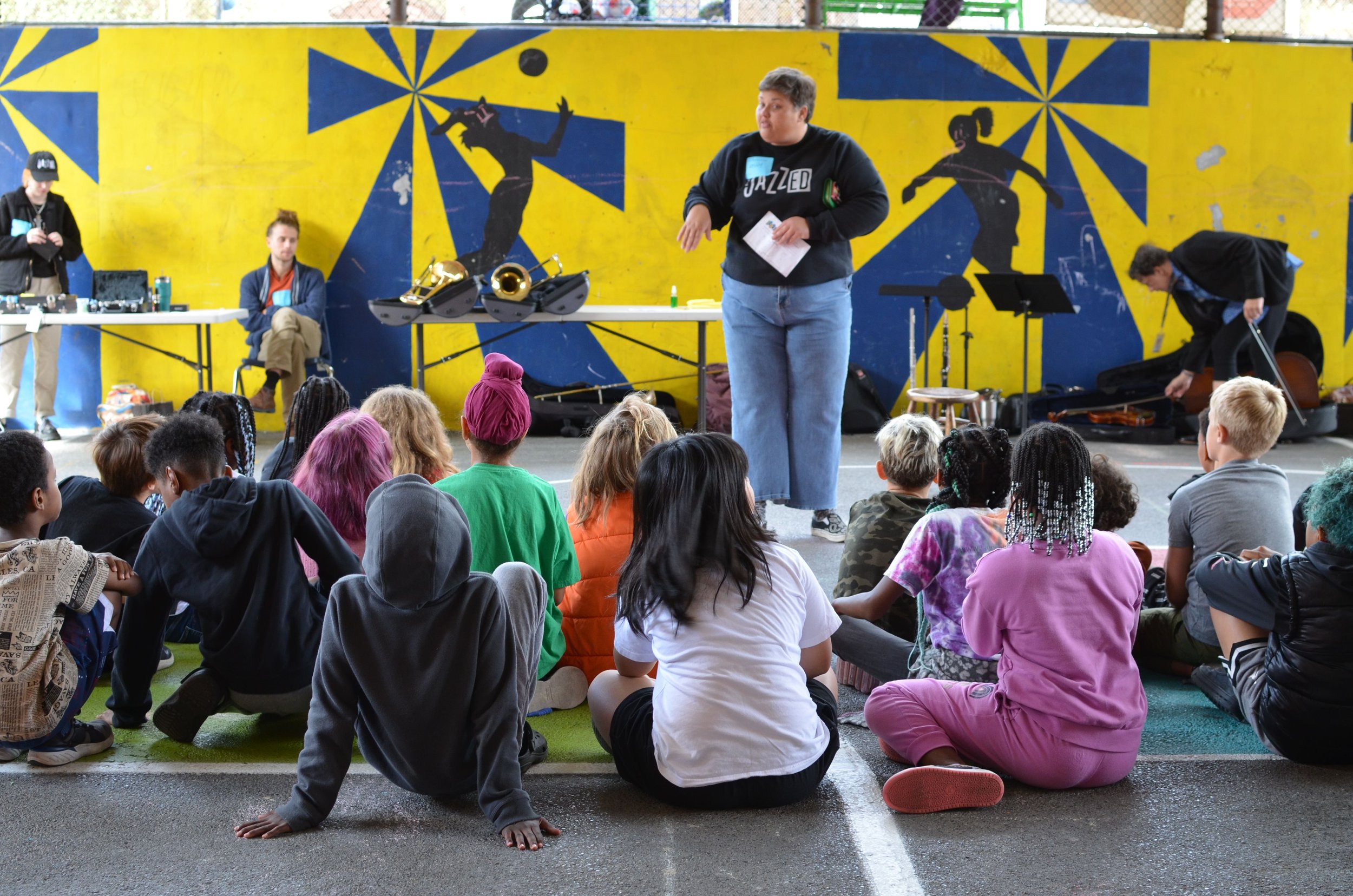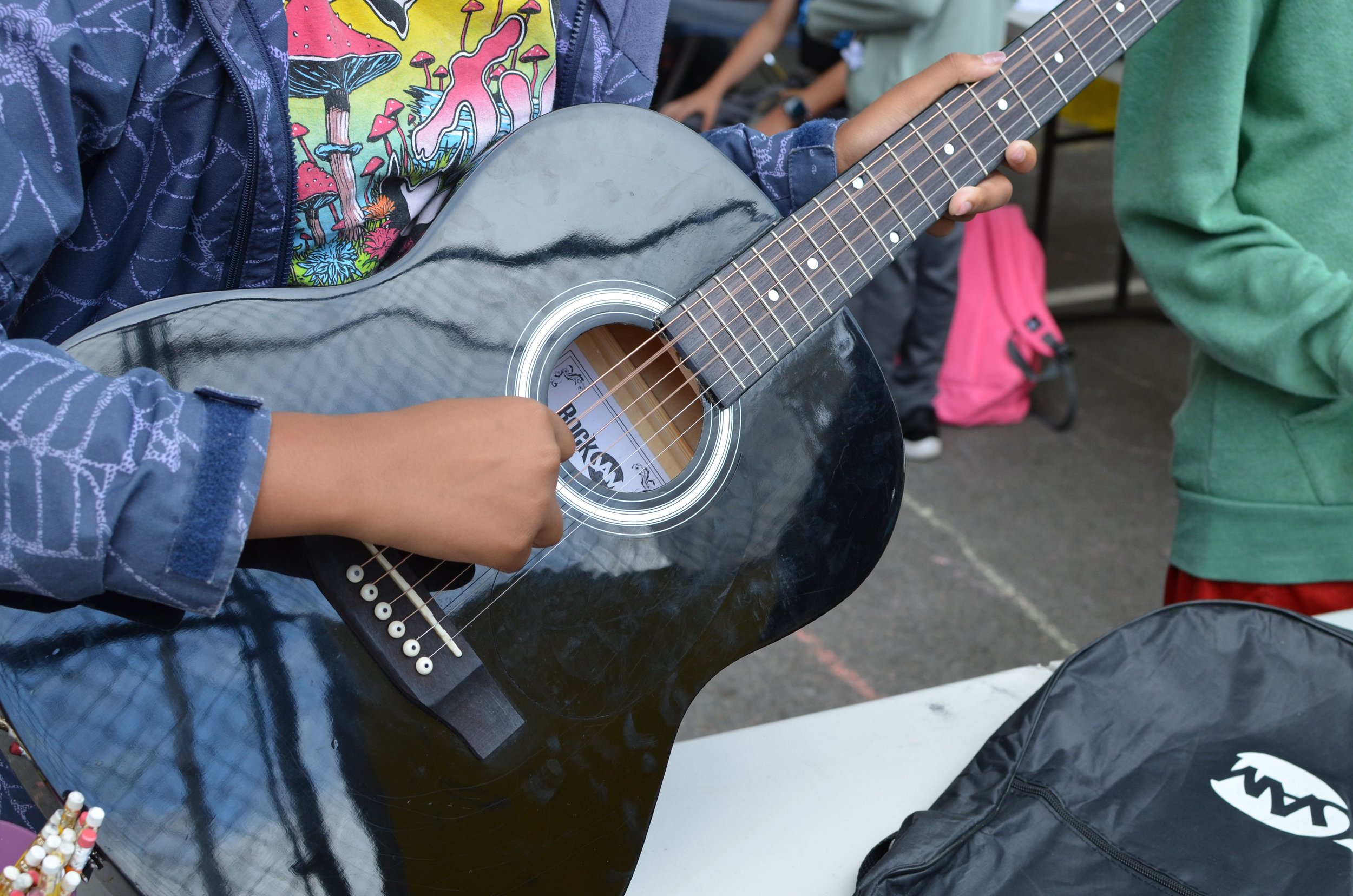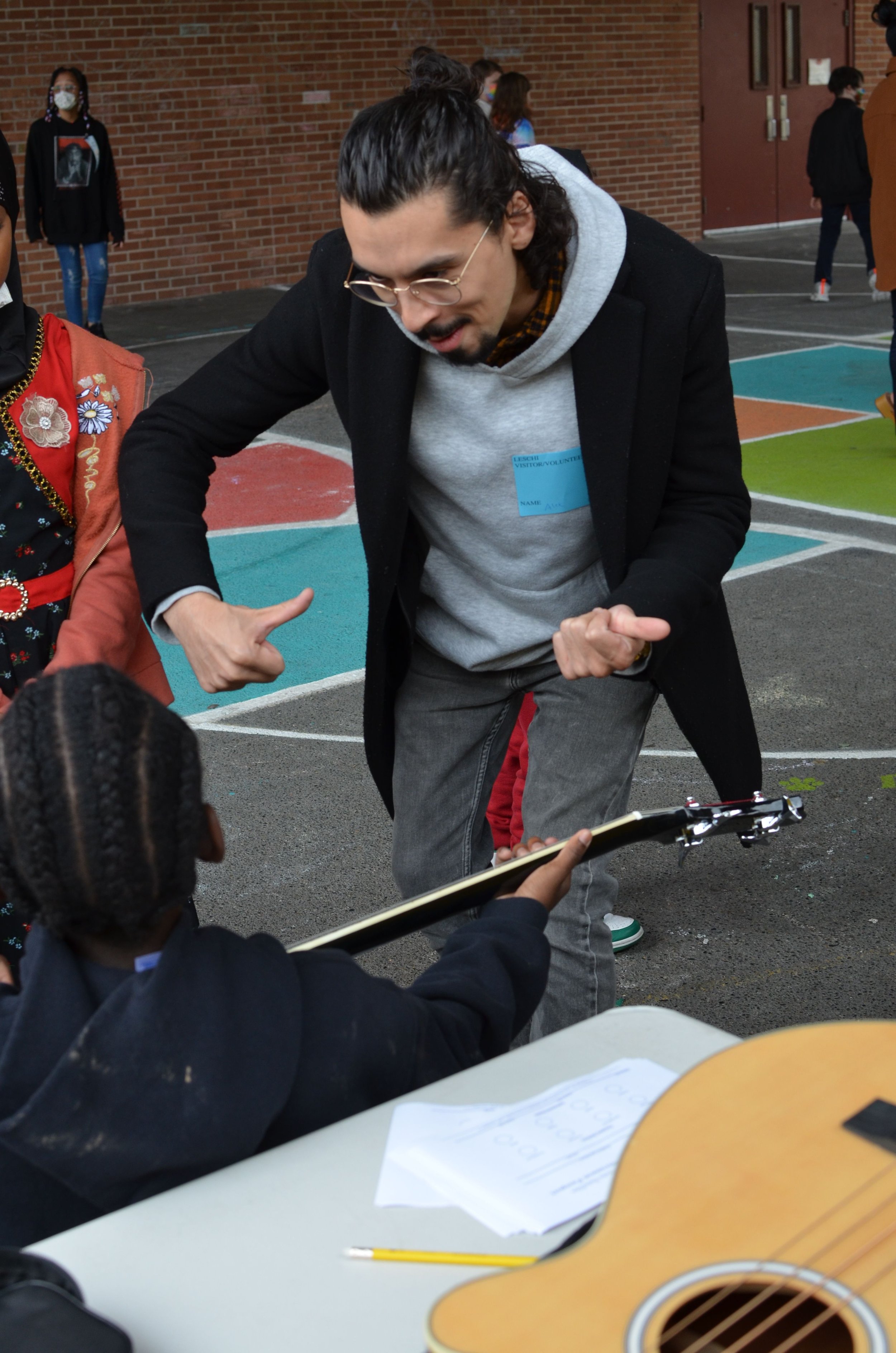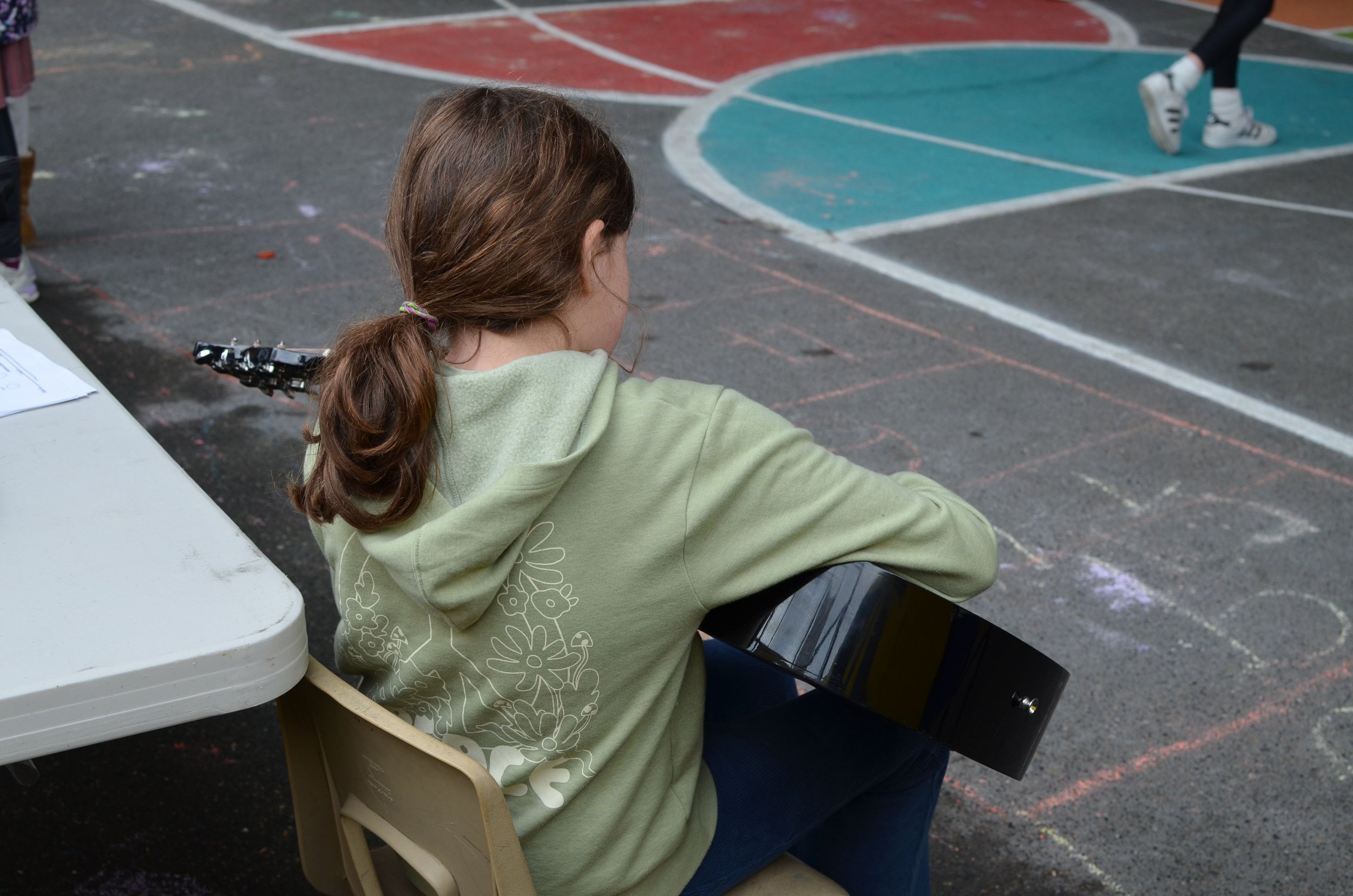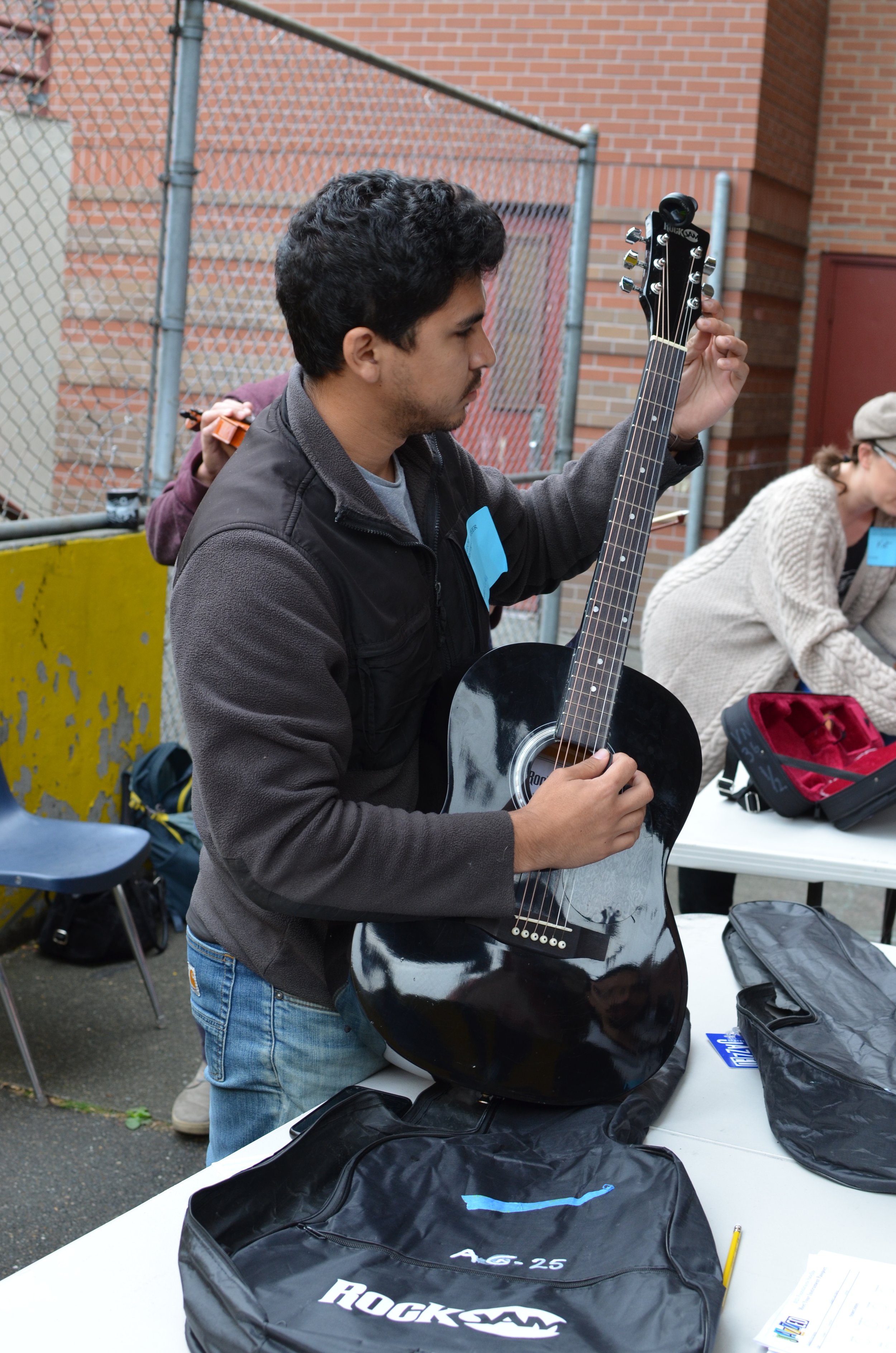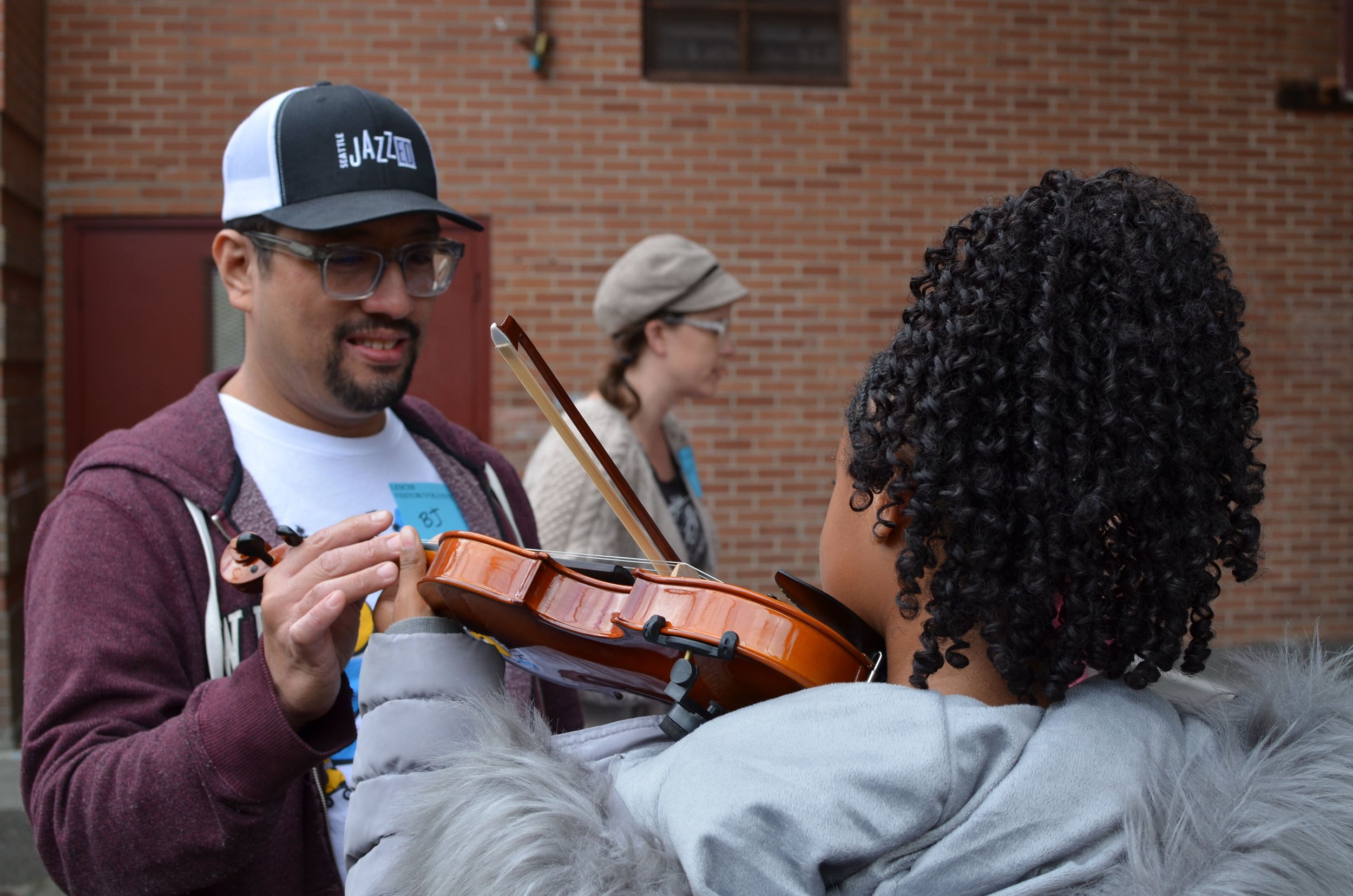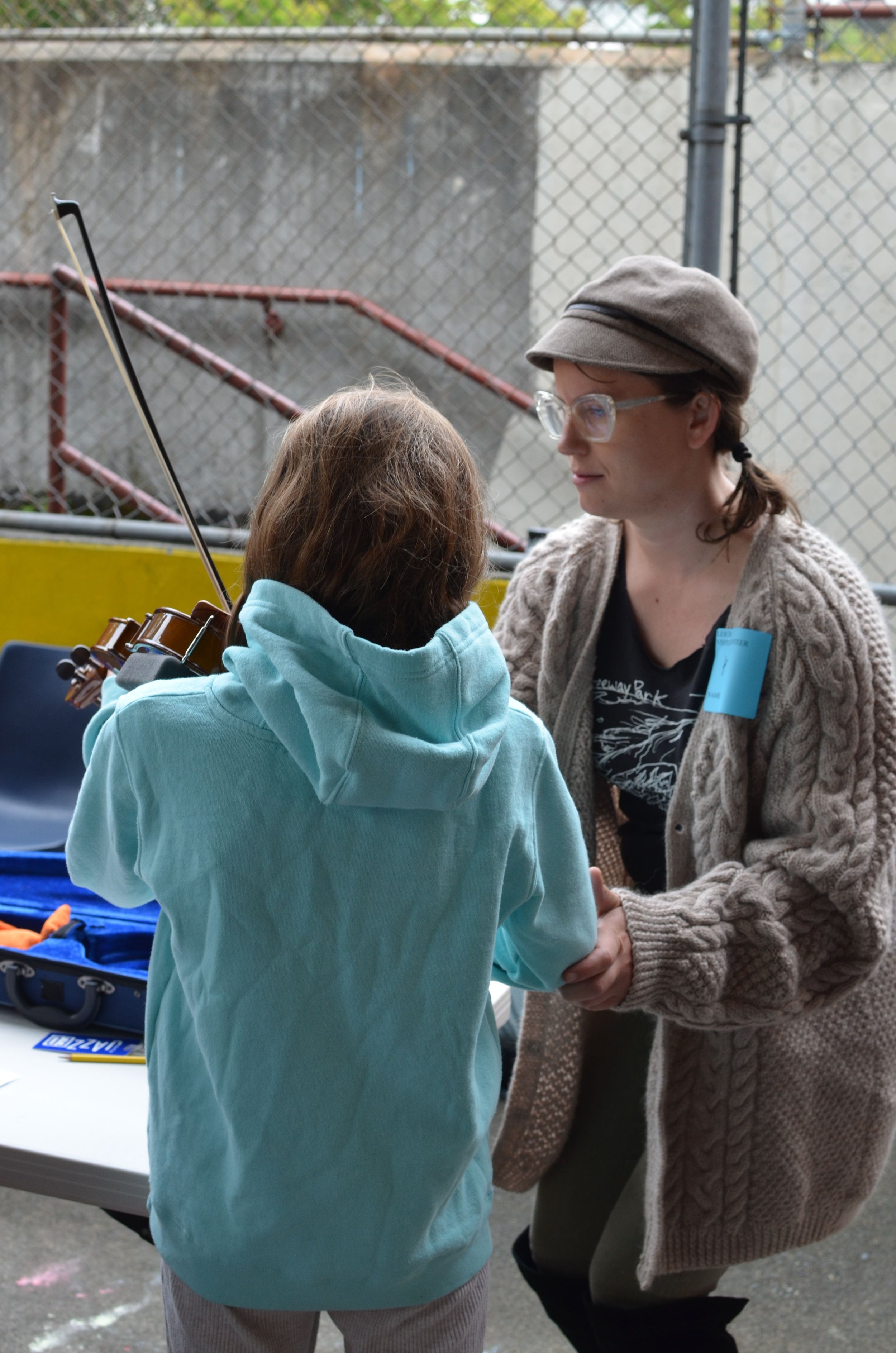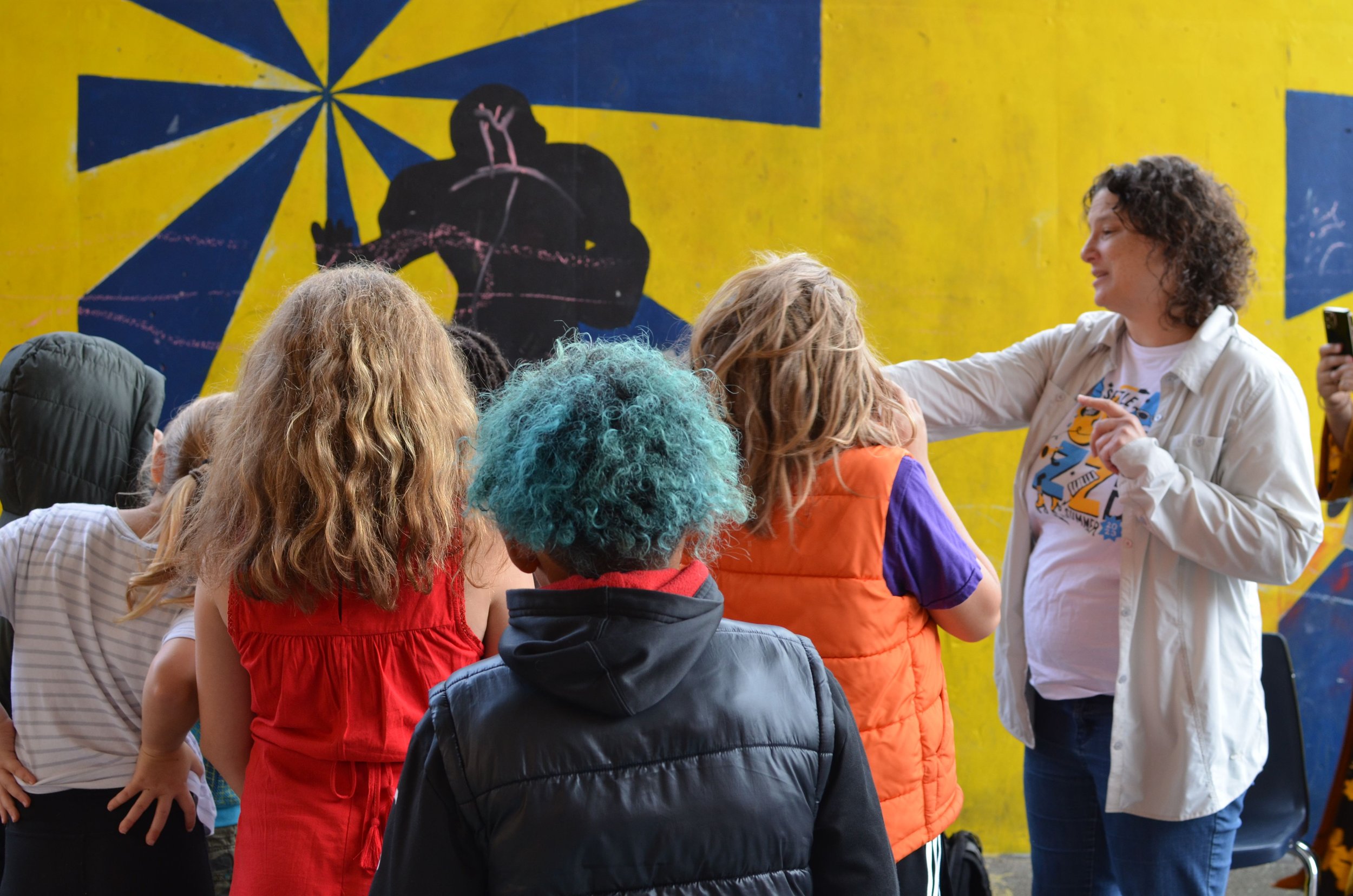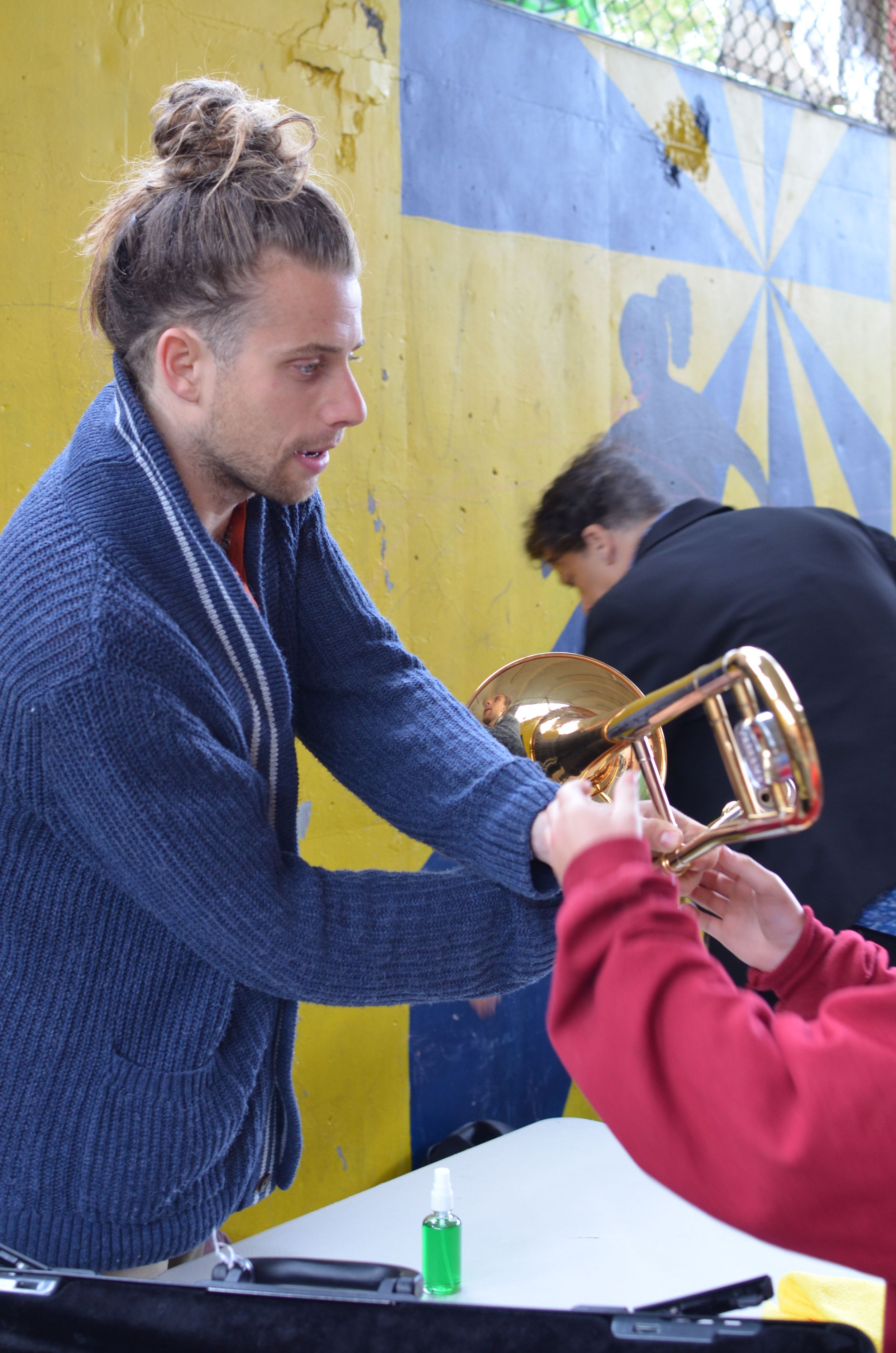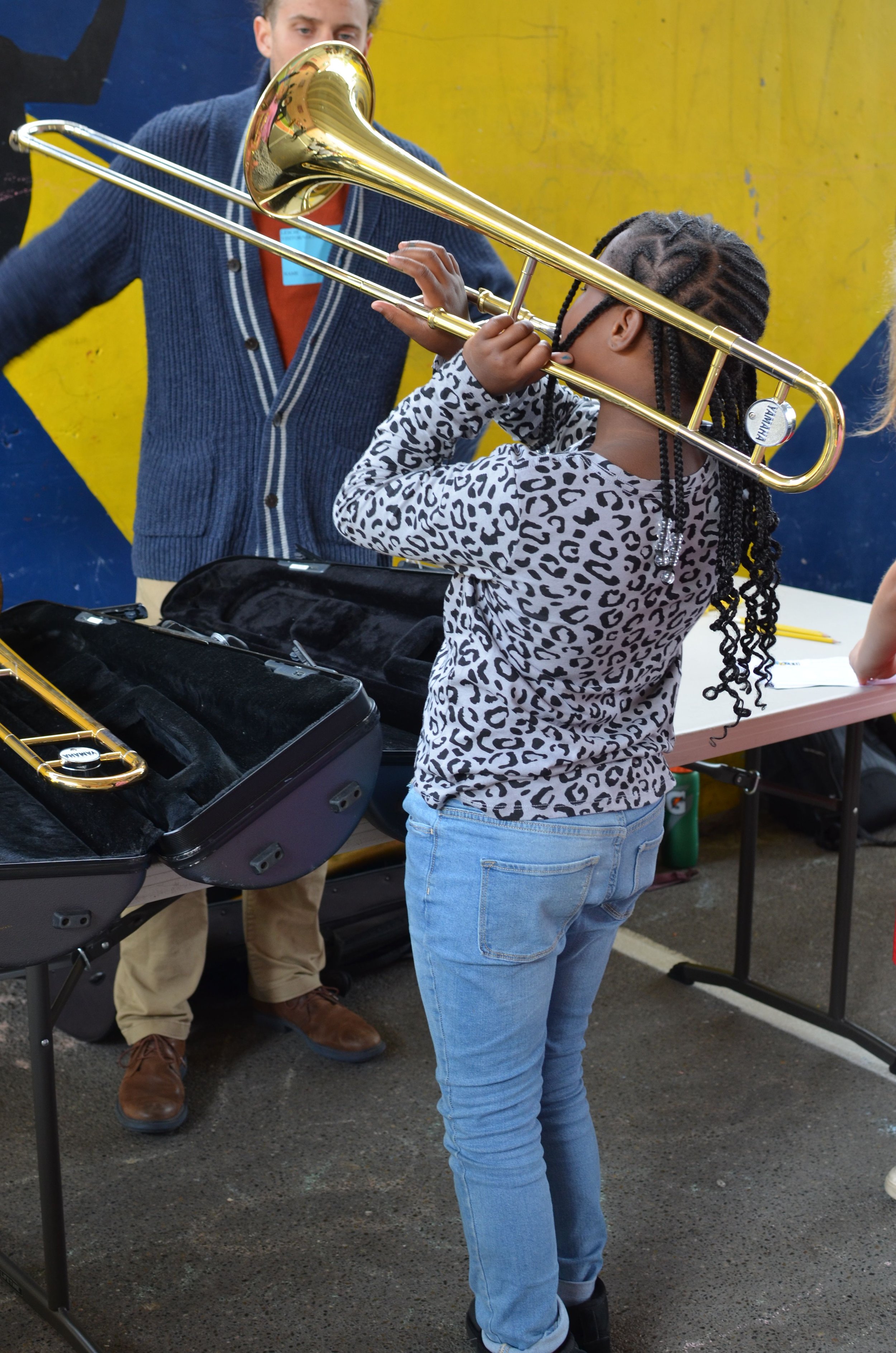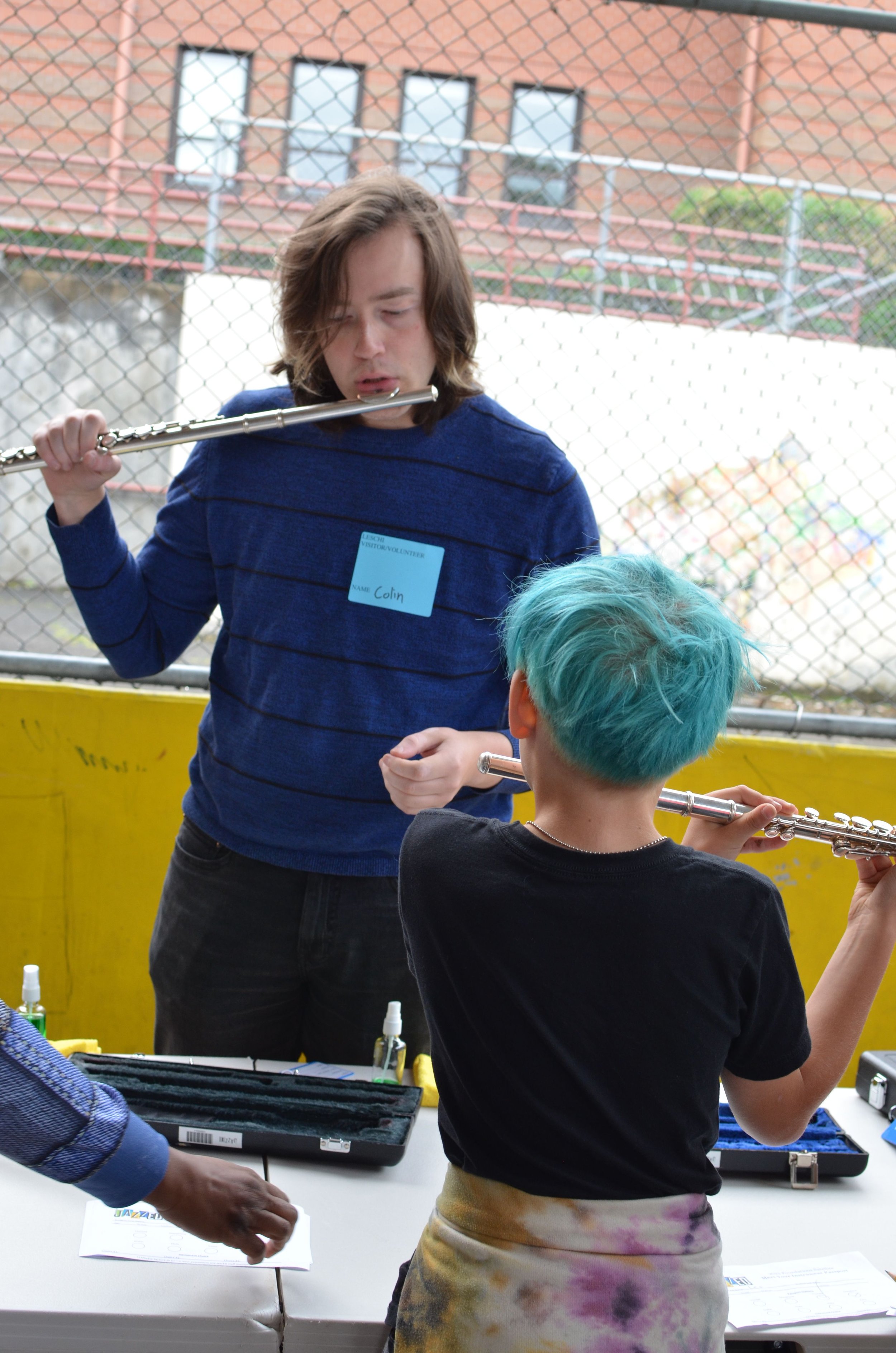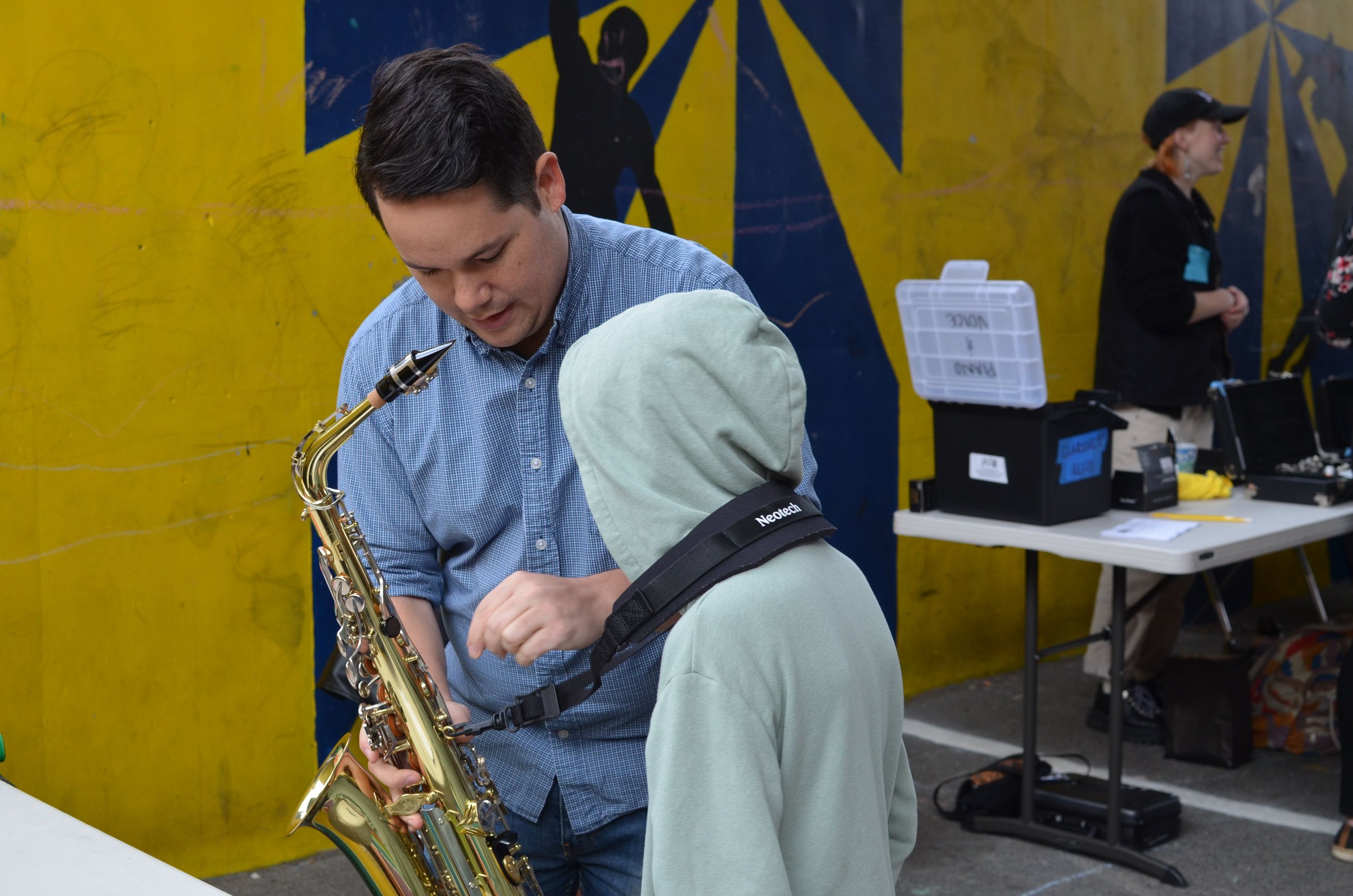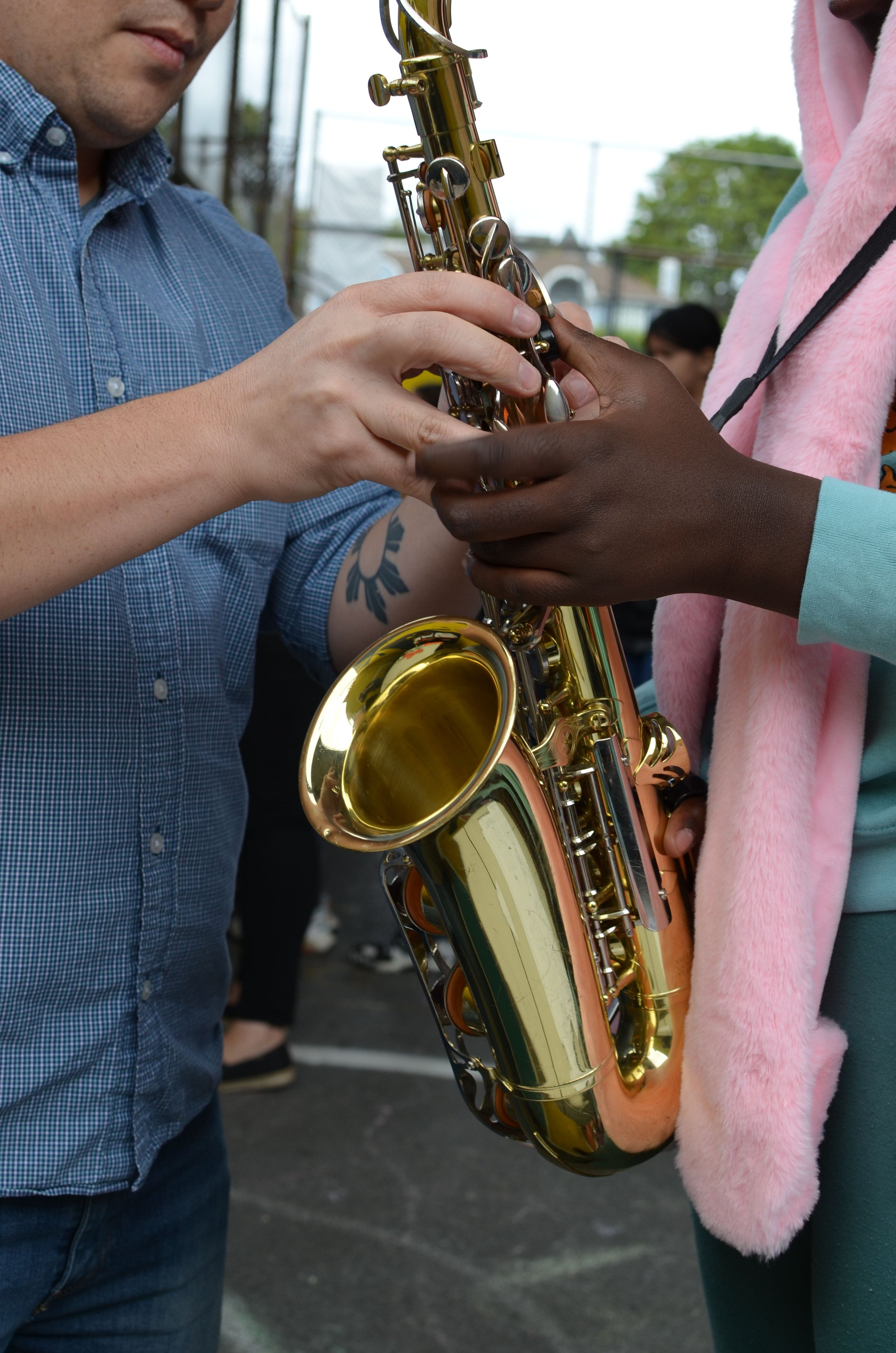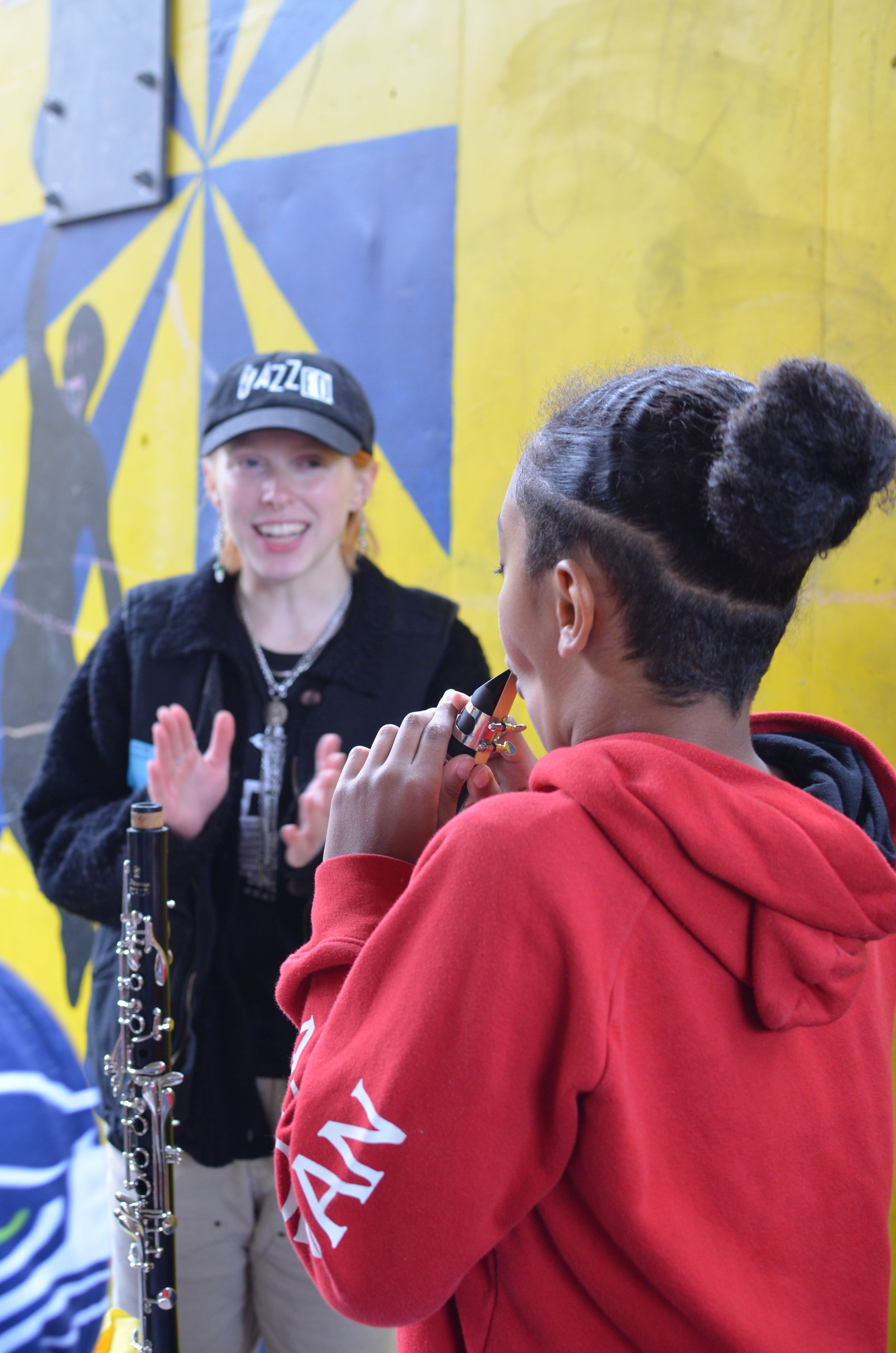Why Access to Music Education Matters
/This is part one of a four-part series where we dive into the sections of our mission statement.
Think back to your school days. Remember that one teacher who made a lasting impact on you?
Now, imagine a classroom filled with multiple dedicated music educators and students, each holding an instrument, with faces of curiosity and intent.
Music education can be a transformative force, not just on individual lives, but for entire communities.
The benefits of music education extend far beyond knowing how to play an instrument. There are holistic benefits like preparing students to learn, enhancing fine motor skills, fostering working memory, and cultivating better thinking skills.
In a study published in the American Psychological Association, the researcher and author states, “Learning to play a musical instrument and playing in an ensemble is very demanding. A student has to learn to read music notation, develop eye-hand-mind coordination, develop keen listening skills, develop team skills for playing in an ensemble and develop discipline to practice. All those learning experiences play a role in enhancing children’s cognitive capacities and their self-efficacy.”
Barriers to Music Education
According to the NAMM Foundation, although 92% of students in U.S. public schools have access to music education, there are still 3.6 million students who lack this opportunity. And an additional 2.1 million students lack access to all forms of arts education, which includes dance, theatre, music, and visual arts.
Here are just a few barriers to entry for young people across the country:
Financial constraints: Families may be unable to afford the costs to purchase and maintain instruments, regular private lessons, or costly program tuition fees.
Resource allocation: Schools can’t offer robust music programs due to a lack of government funding, resources, and teacher shortages.
Transportation: Lack of transportation options to and from classes can limit participation when students and/or families have to travel.
Seattle JazzED’s Approach
At Seattle JazzED, we understand the importance of accessibility and are committed to breaking down these barriers.
JazzED’s co-founder, Laurie de Koch notes, “From the beginning, we have been working to identify and eliminate the obstacles that keeps kids from participating. Whether it was the need for an instrument or the cost of tuition, we sought ways to create access for every student.”
This foundational commitment led JazzED to operationalize infrastructure that creates equitable access. For instance, we offer sliding scale tuition to ensure students from any income level can participate and free loaner instruments to eliminate the cost of new instruments for families.
Another way we break down these barriers is through community-based programming. Going directly into the communities allows us to bring music education to students so it’s more accessible for families.
After our “Meet Your Instrument Day” at Leschi Elementary, we asked Seattle Public School’s K-12 Instructional Services Music Coach, Pamela Ivezic, the impact going directly to the community and schools has on the students participating.
It is incredibly important to have a relationship with the school community you are teaching in. Being present, and authentic when engaging with students, learning about their interests, goals, and hopes is critical to knowing how to engage with them in the music learning process. Engaging with family and staff who are the support system for students, and the broader school community when appropriate, fosters trust and a greater understanding of how to effectively work together for the benefit of our students.
The Broader Impact of Access to Music Education
When all students have access to music education, it promotes diversity, fosters understanding, and bridges socio-economic gaps. Music unites people from diverse backgrounds, transcending differences and fostering empathy. Communities with accessible music education programs tend to be more vibrant and culturally rich. And it can also spark positive emotions. As Pamela puts it,
Students build their confidence, critical and creative thinking skills through music experiences. But I also think the word joy applies here. Joy to have the chance to learn how to play the instrument that you love. Joy to learn alongside and to collaborate with your peers and teachers to make music together. Joy to be able to carry what you learn through your instrument into all other areas of your life. Joy to make music for a lifetime and to share it with others.
The Other Challenges
While increasing access to music education for youth is crucial, it’s not a standalone solution. We must acknowledge some broader systemic challenges in creating accessible music education.
Resources allocated to public music education programs often face limitations and disparities in their distribution. While some schools or districts may have well-equipped departments, others have no music programs altogether.
Historically, arts and music education has been seen as an extracurricular activity rather than an integral part of the curriculum. This results in music programs being deprioritized and underfunded.
Access Matters
Access to music education holds the potential to transform lives, engage students, and create more vibrant communities. It’s a cause worth championing and efforts at all levels are needed to ensure that every student can experience and access music and its benefits.
Let’s build doors to musical exploration that swing open for everyone.
